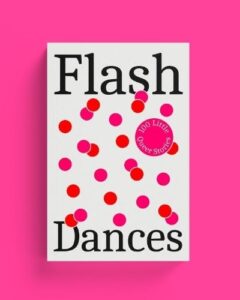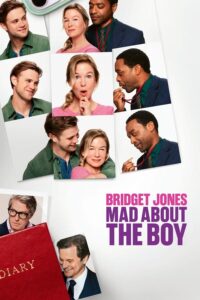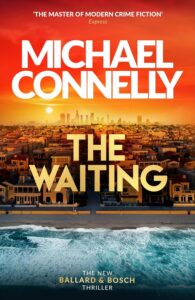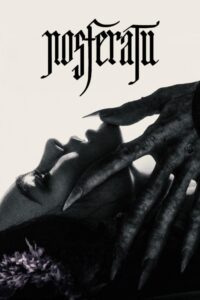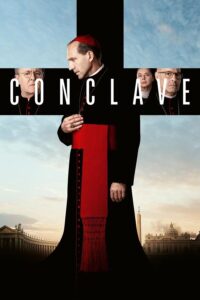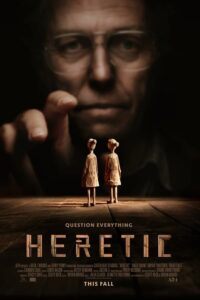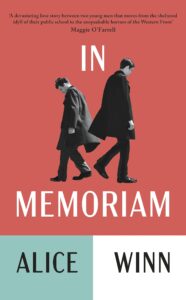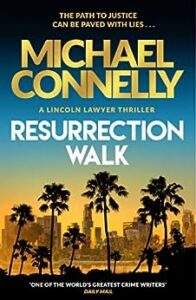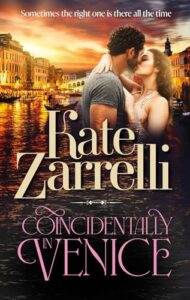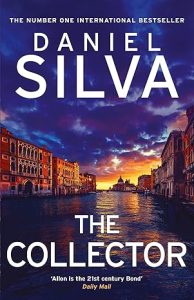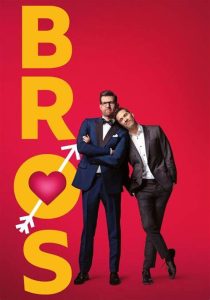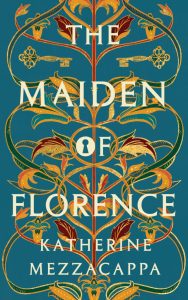David at the Movies: the Show must Come Off
THE LAST SHOWGIRL
Francis Ford Coppola brought us, among other things, the Godfather trilogy, one of cinema’s greatest achievement. Now his granddaughter Gia Coppola, hits the limelight with this near-documentary-style drama about Shelley, an ageing Las Vegas showgirl, played by Pamela Anderson in a raw and searing performance. The revue she is in, styled on Paris’s Moulin Rouge –all ‘tits and ass’ as it was memorably described in A Chorus Line – is pretty tame by today’s standards and earmarked for closure.
Shelley tries and fails to reconnect with her semi-estranged daughter (Billie Lourd) and her stage-manager ex-boyfriend (Dave Bautista) At 57, with no other skills, she faces a future of waiting tables and serving cocktails. Jamie Lee Curtis has a star cameo as exactly that, an ex-showgirl cocktail waitress. Curtis steals the movie with a show-stopping solo dance number that reminded me of Gwen Verdon’s heart-rending routines in the original stage version of Sweet Charity.
Despite great acting and moody cinema-tography, The Last Showgirl feels a little flat. The story is too slight and Anderson is the only character given enough development. And there’s too long a wait to see Anderson’s show routine, which is pitch perfect, with a few sad echoes of a tired old drag queen.
What I’m reading: a collection of Flash Fiction
FLASH DANCES
I shouldn’t be reviewing this, since I’m one of the contributors under my other pen-name. Without drawing attention to my own story, I’ll highlight some of the others that tickled my fancy.
Flash Fiction can be as short as one sentence or up to 1,000 words. Flash Dances is a compilation of 100 stories (and a few poems) from members of the Gay Authors Workshop, which meets in London and on Zoom. The authors are from the LGBTQ+ community, but the themes often go outside gay issues.
Quite a few deal with dying and bereavement, including one relating the gruesome death of a male spider narrated in the first person. I also relished a topical story about assisted dying in Benidorm, a new addition to budget holiday options; and Four Black Dresses, in which an undertaker sensitively prepares a closeted transvestite for his cremation.
On a similar note, Last Word, only 13 lines long, ends with a dying woman whispering: “You’ve been a terrible husband, but I forgive you.” Thus ensuring he will never forgive himself. A whole novel encapsulated in two sentences. There are many outstanding contributions in this richly diverse collection.
If you’d like to Zoom in on Gay Authors Workshop, visit www.paradisepress.org.uk
David at the movies: BRIDGET JONES Chapter Four: a feel-good festival
BRIDGET JONES:
MAD ABOUT THE BOY
Usually when a movie ‘franchise’ gets to Chapter Four, the scripts get thinner and the acting more perfunctory. Bridget Jones’s fourth outing beats its predecessors hands down – pants down! Passing fifty and widowed by the death of Mister Darcy (Colin Firth), Bridget lets her chums talk her into online dating and immediately hooks up with a toyboy more than twenty years younger (Leo Woodall); he’s not just a sexy hunk, he’s a kind and serious man who bonds with her kids as well as with our heroine. An intense love affair ensues which, of course, has to go wrong so that someone else can have a bash at Bridget. Lecherous old Daniel Cleaver (Hugh Grant) keeps popping up, and there’s the brooding presence of Bridget’s son’s handsome science teacher (Chiwetel Ejiofor).
Renée Zellweger immersively and gleefully back into the title role. Bridget is older but not much wiser. She never stops worrying, and yet she juggles her kids, her career, her large and demanding circle of friends (Sally Phillips steals several scenes) and a sweaty love affair. The ghost of Colin Firth is a welcome bonus, as is the only-just-still-living Hugh Grant. Helen Fielding’s script feeds Bridget a near–constant interior monologue, which mostly consists of nonstop swearing; Zellweger gives the f-word fifty shades of nuance.
Michael Morris’s direction is up there with Richard Curtis’s. More than just a romcom, this is a frenetic feel-good festival. If Bridget can sail triumphantly through that worrisome period between youth and middle-age, so can we all (I did, decades ago). There are good times a-plenty. Go for it! And don’t miss this movie.
What I’m reading: like father, like daughter
Michael Connelly: THE WAITING
Renée Ballard’s team reopening old cold murder cases has a new member: Maddie Bosch, Harry Bosch’s daughter fresh out of training college. Mattie is standing in for her father, who’s undergoing chemotherapy and makes only brief appearances. A DNA hit identifies the likely perpetrator of a twenty-year-old series of rapes that culminated in a murder. But Maddie chances upon a stash of photographs that potentially unlocks one of Los Angeles’s most notorious unsolved murders, the ‘so-called “Black Dahlia” killing of 1947.
The two cases run side by side. As usual, Ballard’s team are hampered by a section chief obsessed with cost-cutting and a District Attorney with a grudge against the department. Maddie proves to have her father’s gift for digging down to the bare bones of a case. The murder of a team member provides a shock preface to Ballard’s confrontation with the killer/rapist.

Michael Connelly’s great gift is to take his readers deftly through the daily slog of interviews and searches that maker up a murder investigation, whether it’s contemporary or a cold case. His short crisp chapters totally eliminate the tedium that must accompany these cases in the real world. The tension is near constant and builds, as always, to a satisfying climax.
As for the Black Dahlia, if you go to Wikipedia you’ll find there have been dozens of named suspects over the decades. He’s America’s equivalent of Jack the Ripper. An unsolved crime can enthral us as much as one that ends in a judicial execution or a whole-life sentence.
David at the Movies: Vampire movie with great Style but not enough Substance
NOSFERATU
I’ve been looking forward to this. Recycling a title that’s almost more iconic than Dracula. But this version is a disappointing rehash. The core story isn’t strong enough to sustain the long running time (132 mins).
The beginning is especially slow: Thomas Hutter, the Jonathan Harker character (Nicolas Hoult), taking papers to Count Orlov (Bill Skarsgard) in his gothic castle. The long middle section is equally slow: Hutter’s wife Ellen (Lily-Rose Depp) becoming as obsessed with the vampire as he is with her. Various elements from the Dracula story are mixed in: the Renfield insect-eater, here called Knock (Simon McBurney) and Professor Eberhart, the Van Helsing know-it-all (Willem Dafoe).
The music is loud, but the scares are few until the last half-hour. Of the performances, only Ms Depp stands out, a beauty both haunting and haunted. Skarsgard’s Orlov is nowhere near as sinister as Max Schreck was a hundred years ago.
Production values are possibly a degree or two higher than in the Francis Coppola Dracula (1992), which for me remains the number-one. This version has great style but lacks pace and substance. That said, I’ll watch it again when it turns up on TV. Good, bad or indifferent, I find vampire movies endlessly watchable.
David at the Movies: the Papal Talent Show
CONCLAVE
Conclave has attracted 4- and 5-star reviews, so I expected it to be good, and it is. The recreated Sistine Chapel is glorious and, bursting with red-robed cardinals, I got a few flashbacks to TV’s Handmaids. Ralph Fiennes is Cardinal Lawrence, the Dean, charged with chairing the election of a new Pope; Stanley Tucci is his closest ally and John Lithgow his nemesis. All three are on top form, as is everybody in the cast. Only a handful of nuns are allowed to attend to the cardinals, so no big female parts, although Isabella Rossellini is given a key speech and is still a radiant beauty at 72.
Robert Harris writes great thrillers, and the screenplay keeps all the conspiracy elements, so that a very “talky” tale has tension all the way and moments of great excitement. If you haven’t read the book, I think the climax will surprise you; it knocked me for six.
The actors and all concerned should be grateful that the Vatican no longer issues the Papal equivalent of a “fatwa“. It used to.
* * * * * * * *
Technical issues kept my website offline for a few weeks. Here’s a brief update on the movies I’ve seen:
SALEM’S LOT
HERETIC
Two young female Mormon missionaries call at the house of Mr Reed down a country lane to peddle their brand of faith and soon wish they hadn’t.
The casting of Hugh Grant and the religious debating are clearly intended to give Heretic some extra “gravitas”, which works in the Upstairs chapter of the story, but Downstairs is a dark and dismal place where the movie and Mr Reed descend into Torture Porn, where so many modern horror movies take us.
Casting Grant elevates Mr Reed, but I’m not sure that playing Reed elevates Mr Grant.
* * * * * * * *
 GLADIATOR II
GLADIATOR II
First the good news: as sequels go, this is better than most. And the way the screenplay slowly increases the links to the Russell Crowe version is quite neatly done. The bad news: almost everything is in a kind of desperate overdrive. There are twice as many gladiator fights and twice as many sea battles.
Paul Mescal does a brave job stepping into Russell Crowe’s sandals, but although he’s younger and cuter and more buff, his Lucius lacks the solidity and the gravitas that Crowe brought to Maximus. The sets, whether they’re CGI or fibreboard, are almost worthy of Liz Taylor’s Cleopatra, but the script is too long.
There is twice the violence of Part One, but there isn’t twice the resonance. We’re often told that Less is More; here More is quite a lot Less.
Wot I’ve been reading
There’s been a hiatus due to technical problems. In case you didn’t find your way to my resurrected old blog, here are the reviews you missed:
* * * * * * * * * * * * * * * * * * * * * * * *
Gay love in the trenches of World War One
ALICE WINN: In Memoriam
At a boys’ private school in rural England teenage Sidney Ellwood is infatuated with Henry Gaunt. They both write poetry (in a postscript Alice Winn admits that she drew inspiration for her two lead characters from Siegfried Sassoon and Rupert Graves) and have been dabbling in adolescent sex with other pupils. But this is 1914 and Britain is going to war with Germany. Girls are giving white feathers to young men accusing them of cowardice if they are out of uniform.
As soon as they are old enough (18) Gaunt and Ellwood join up and find themselves reunited with other old boys from their school in the trenches of Belgium and France, culminating in the Somme, where wave after wave of British soldiers fight to advance a few yards into German-occupied territory. We already know the casualty rate: thousands die; thousands more will go home scarred and mutilated physically and mentally. The “war to end all wars”; of course, it didn’t.
Alice Winn is not the first female author to write about men at war. Pat Barker wrote a Booker-prize-winning trilogy and an early Susan Hill novel has gay love flourishing in the trenches. Like her predecessors, Winn writes beautifully and does eloquent justice to the theme of gay love in wartime. In Memoriam moved me to tears several times. This is an outstanding novel, one of the best I have read since the turn of the century and, right now, a timely reminder that wars don’t only happen to other people. Our fathers and grandfathers became cannon fodder 110 years ago, and it could very easily happen again to us and our sons and brothers.
* * * * * * *
* * * * * * *
Guilty till proven innocent
MICHAEL CONNELLY:
Resurrection Walk
* * * * * * * * *
Romance, fashion and food in Venice: What could be better?
KATE ZARELLI:
Coincidentally in Venice
Watching a piazza in Venice on a webcam helps London office-worker Ashley through the Covid lockdowns and a love affair that turns sour. Made redundant in 2022 she and her best friend Juliet go to Venice and seek out the square. Juliet quickly finds a dishy Italian waiter, but romance for Ashley takes the unlikely form of an Irish accountant from her old firm, beginning a new career as an art restorer.
Ashley and Juliet both start totally different lives in Venice. The wife of Ashley’s ex-boss, now launching herself as an art patron, threatens to put a spanner in the works, but …. No spoilers from this reviewer!
Kate Zarelli also writes as Katie Hutton, rich and intense historical fiction set in the English Midlands. In her Derbyshire novels I have detected a hint of Thomas Hardy. In her contemporary novels I hear sizzling echoes of Carrie Bradshaw and Bridget Jones. Ms Zarelli brings people and places gloriously to life and light. Coincidentally in Venice has everything its magical setting deserves: romance (with titillating sex scenes) laced with a hint of danger. For food lovers there are some delicious meals, and for fashion-lovers some frocks to die for!
* * * * * * * * * * *
What I’m reading: From stolen art to nuclear Armageddon
Daniel Silva: THE COLLECTOR
After five years heading the most lethal branch of Israel’s secret service Gabriel Allon has retired to Venice with his (second) wife and children. He resumes his other career as an art restorer (the best in the business) but accepts a commission to investigate the murder in Amalfi of a shipping tycoon who happened to own a missing Vermeer portrait, stolen more than thirty years ago.
The trail leads, as they so often do in Daniel Silva’s stories, to the decadent Kremlin of Vladimir Vladimirovich (only in the postscript does he add the surname beginning with P). A honey-trapped Danish oil tycoon is an intermediary for the stolen art and implicated in a daring scheme to escalate the Ukraine war into a nuclear Armageddon.
To thwart this apocalyptic plan, Gabriel recruits a newcomer to his team, an IT hacker, also Danish, with a sideline as a cat-burglar (she stole the stolen Vermeer but didn’t kill the tycoon), who reminded me of Modesty Blaise, a superwoman from the era of Ian Fleming’s original Bond books. Like Peter O’Donnell’s Modesty, Silva’s Ingrid should be – and almost is – too good to be believed, but the author brings her and his story to a nail-biting climax on the Russian-Finnish border, where the skills from Gabriel Allon’s first career as a Mossad assassin come in handy.
Daniel Silva’s twenty-third Gabriel Allon adventure is one of the most outlandish and dangerously close to being a parody, but the sheer pace of this ‘caper’ carries the reader breathlessly along. Another terrific read from my long-term favourite thriller writer.
What I’m watching: Romcom that doesn’t want to be a romcom
BROS (Netflix)
This 2022 movie is new, belatedly, to Netflix in UK. It’s a romcom about two guys who don’t want their lives to be like a gay version of When Harry Met Sally. Bobby (Billy Eichner) is a popular podcaster heading up a team to launch a LGBTQ ‘History Museum’. Aaron (Luke MacFarlane) has an IT job but dreams of being a chocolatier. They become sex-buddies but resist – not for long – becoming a ‘couple’. When they do become a couple things get complicated; why wouldn’t they?
The first half of the movie is a lot like episodes of Will & Grace (and even has Debra Messing in a cameo – as herself); lots of snappy dialogue and . When it stops trying not to be a romcom and becomes a romcom, it climbs out of the shallows and becomes a serious ‘Relationship Movie.’ The sex scenes are pretty hot stuff (hot stuff and pretty); the two leads are attractive and believable; the supporting cast, especially the History Museum boardroom, are a joy.
My favourite gay Netflix series is still Hollywood, which revised Tinseltown history to turn the deeply closeted Rock Hudson into a liberationist pioneer. But Bros is fairly charming, a big improvement on Smiley and Fire Island.
What I’m reading: the price of virginity
Katherine Mezzakappa:
THE MAIDEN OF FLORENCE
Florence, 1584. The virility of Vincenzo Gonzaga, heir to one of Mantua’s most powerful families, has been called into question ahead of his marriage to a princess of the Medici clan. A bridal ‘surrogate’ is called for, a virgin whose deflowerment will scotch the rumours. The chosen virgin is Giulia, a girl of rare beauty growing up in an orphanage in Florence, the illegitimate daughter of another noble family. In return for her maidenhead, she will be rewarded with a generous dowry and a respectable husband.
Prince Vincenzo is a ‘playboy’ of his time; spoilt and selfish but stunningly handsome; Giulia falls for him and he for her. Their mating is very unromantic: the ‘rules’ require medical witnesses not just to confirm Giulia’s virginity but also to verify every stage of her deflowerment. Giulia is narrating her story and both procedures are so clinical as to remove most of the erotic element. The process is fully successful; Vincenzo impregnates her, but this child, a prince’s bastard, is also confined to an orphanage.
The husband they find for her, Giuliano, is a good kind man, a musician, and they will have a happy life punctuated by a number of childbirths and, inevitably, some child deaths. But Giulia resolves to find her first child, the prince’s bastard, even though this involves further dealings with Cavaliere Vinta, the Gonzagas’ creepy majordomo.
Katherine Mezzakappa’s novel, a true historical story melding into fiction, is finely researched and fully convincing. Giulia’s narrative voice is modern, but never clunky or anachronistic; Florence, observes Giulia, is “too small for secrets to remain secrets for long,” Renaissance Italy is brought vividly to life. From a squalid episode in 16th-century history Mrs Mezzakappa has crafted a literary gem, a story richly steeped in romance and drama.

